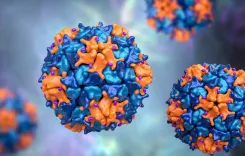All About Intermittent Fasting
By Andrea Cooper
2 March 2023
Intermittent fasting (IF) has become a popular health trend in recent years. It involves skipping meals or reducing calorie intake for a period of time, followed by normal eating. While some people use IF for weight loss, research has shown that it can offer many other health benefits as well. In this article, we'll explore the physical, mental, and beauty benefits of intermittent fasting.

Physical Benefits
Weight Loss
Intermittent fasting is a popular weight loss method as it helps to reduce calorie intake. When you fast, your body uses stored fat for energy, resulting in weight loss.

In addition, fasting can help to reduce your appetite and promote healthier eating habits, leading to sustainable weight loss.
Reduced Risk of Chronic Diseases
Intermittent fasting has been shown to lower the risk of chronic diseases such as type 2 diabetes, heart disease, and cancer.

It can help to reduce insulin resistance, inflammation, and oxidative stress, which are all risk factors for these diseases.
Improved Digestion
Fasting can help to improve digestive health by reducing inflammation and increasing the diversity of gut bacteria.
It can also help to reduce symptoms of digestive disorders such as irritable bowel syndrome (IBS).
Improved Energy
Intermittent fasting has been shown to improve energy levels and reduce fatigue.

Fasting can help to increase the production of mitochondria, which are responsible for producing energy in the body.
Anti-Aging
Fasting can help to reduce the signs of aging by reducing oxidative stress and inflammation.

It can also help to increase the production of human growth hormone, which is important for maintaining muscle mass and bone density.
Mental Benefits
Improved Mental Clarity
Fasting can help to improve mental clarity and focus.

It can also help to reduce brain fog and improve cognitive function.
Reduced Risk of Neurodegenerative Diseases
Intermittent fasting has been shown to reduce the risk of neurodegenerative diseases such as Alzheimer's and Parkinson's. Fasting can help to improve brain function and reduce inflammation in the brain.
Reduced Stress
Fasting can help to reduce stress and improve mental well-being.

It can also help to regulate the production of cortisol, which is a hormone that is released in response to stress.
Improved Mood
Intermittent fasting has been shown to improve mood and reduce symptoms of depression. Fasting can help to increase the production of serotonin, which is a hormone that is responsible for regulating mood.
Improved Sleep

Fasting can help to improve sleep quality and reduce insomnia. It can also help to regulate the production of melatonin, which is a hormone that is important for regulating sleep.
Beauty Benefits
Improved Skin Health
Intermittent fasting can help to improve skin health by reducing inflammation and increasing the production of collagen. It can also help to reduce the signs of aging such as wrinkles and fine lines.
Reduced Acne

Fasting can help to reduce acne by reducing inflammation and regulating hormone levels. It can also help to improve skin health, which can reduce the occurrence of acne.
Improved Hair Health

Fasting can help to improve hair health by increasing the production of keratin, which is a protein that is important for hair growth. It can also help to reduce the occurrence of hair loss.
Stronger Nails
Intermittent fasting can help to strengthen nails by increasing the production of collagen and keratin. It can also help to reduce the occurrence of brittle nails.
You Might Also Want To Read This
Popular Posts






